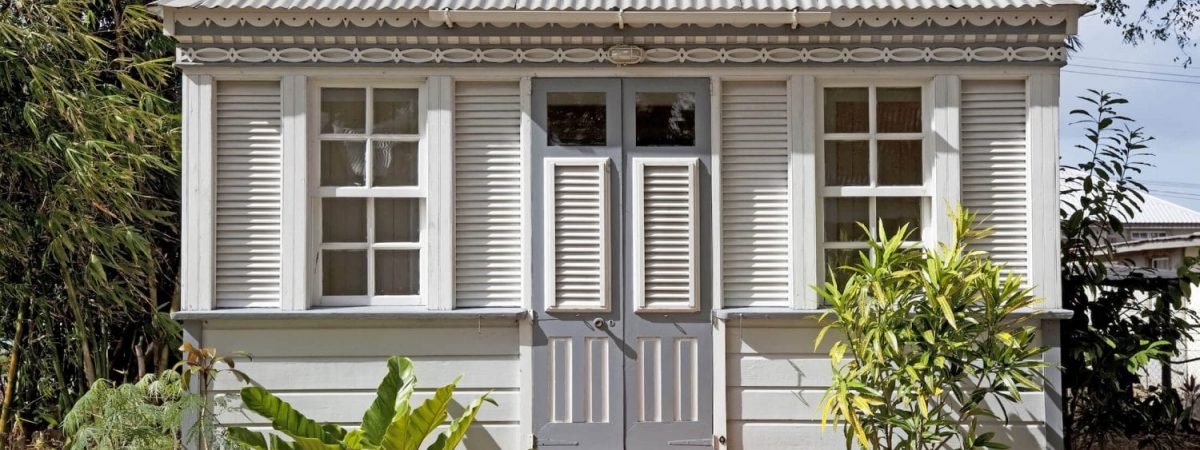You finally saved enough for a 20 percent down payment and you’re ready to start house shopping. I hate to be the one to tell you, but you may not be as financially ready as you think for buying a house.
Here’s my cautionary tale from the first house I ever bought: a $79,000, two-bedroom, one-and-a-half bathroom townhouse just a few blocks from the beach.
The purchase price of $79,000 snowballed into a lot more.
Homeowners Insurance and Property Taxes

Seasoned homeowners know that you’ll have to pay for homeowner’s insurance and property taxes. However, first-time buyers may not realize how quickly these add up.
Property taxes are generally calculated using a percentage of the assessed value of the home. In some places, the average property taxes are only one percent or less. But the average can be as high as 2.11 percent, according to the Tax Foundation.
Our property taxes were reasonable coming in at $475 a year. However, my wife and I could not believe the cost to insure our humble first home. Our townhouse was close to the beach in Florida, and we could only obtain hurricane insurance through a state-backed agency. That made our insurance outrageously expensive, costing us $1,912 a year. Ouch.
Closing Costs
When you close on your home, you’ll likely have to pay thousands of dollars above your down payment for closing costs. You may have to pay things like origination fees for your loan, tax stamps, transfer taxes, and certification and recording fees. You normally prepay a few months’ worth of your homeowners insurance and property taxes, too, if you’re setting up an escrow account.
Luckily, if you work with your real estate agent and the mortgage company in advance, you can anticipate these costs while buying a house. In total, these closing costs added an additional $3,200 to our home purchase.
Moving Costs
After you’ve closed on your home, it’s time to move there. Unfortunately, moving isn’t free. Most people have to rent a U-Haul or Penske truck. Then, they load up their belongings, and move them into their new home.
Personally, my wife and I have always gone the cheapest route. We pack our own items, rent a truck, load the truck with the help of our friends and family, and then unload everything into our new home.
Just remember: if you enlist the help of others, make sure to at least get them some pizza and beer to thank them.
This was a relatively low cost item for us, as we were just moving an hour away. Still, it set us back an additional $235.
Renovation Costs
Even if you found the perfect home for you, there will come a time when you want to renovate. It’s just part of home ownership. My wife and I normally buy homes that need a little bit of work, mainly cosmetic. This allows us to get a better deal. That means we budget more for renovations when we are buying a home.
For instance, after moving into our townhouse, we did the following:
- replaced every light fixture and ceiling fan,
- replaced old toilets with high-efficiency models,
- replaced old slab doors with updated six-panel doors,
- replaced the mismatched door hardware with matching brushed nickel hardware,
- and repaired some rotting wood on our storage shed.
If you’re considering making changes to your new home, make sure to include those changes in your budget. Renovation items cost us $1,014.
Maintenance Costs
Finally, when you move into a home, it doesn’t magically maintain itself. If you’re used to renting, the landlord likely fixed most issues. Buying a house means that YOU are your own landlord.
You’ll have to keep your new yard maintained. This may mean buying a trimmer or other tools, which cost us $63. Sadly, our lawn was dead when we moved in during the heat of the Florida summer and it cost us $326 to lay sod ourselves. Other miscellaneous landscaping set us back an additional $67.
Basically, if something breaks, you’ll have to fix it, pay someone else to fix it, or pay to replace it.
We had two appliances that needed to be updated when we moved in. We replaced the clothes dryer and the microwave at a cost of $685.
These things add up over time, so make sure you add a line item to your budget for maintenance. If you don’t use the money one month, make sure to save it. You never know when your air conditioner will need a $3,000 replacement. Buying a house requires longer term investment than renting.
Home ownership can be an awesome accomplishment. Just make sure you’re buying a home with your eyes wide open. In the first year after we bought our townhouse, we paid an additional $7,977 in home-related costs. That’s more than 10 percent of the purchase price of our home!
While our example may be extreme, sometimes the additional costs make home ownership seem much less attractive than just paying the rent every month.





We moved about a year and a half ago and I decided to have a sprinkler system installed. That set me back about $2,000 but after spending $600 on sod I knew it had to be watered regularly to keep it alive. It’s a lot of money upfront but so worth it in the long run.
Pingback : Living Abroad: Israel Tests Jessica's Frugality - CentSai